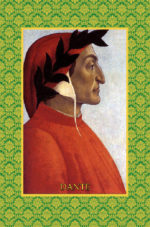THE UNITED KINGDOM Independent Party (UKIP), an anti European Union or Euro-skeptic party, has recently emerged in the United Kingdom as similar parties are emerging all over Europe, most prominently in Poland, Hungary, Slovakia Greece and France.
The UK story has extra merit since Nigel Farage, a founding member of UKIP is the first foreign leader to arrive on US soil to meet with president-elect Donald Trump. Farage’s visit comes on the heels of a warning and potential snub delivered by German Chancellor Angela Merkel who immediately set liberal conditions on her relationship to the new president and by extension to America itself. In her congratulatory communication to Trump, Merkel stated:
“Germany and America are connected by values of democracy, freedom and respect for the law and the dignity of man, independent of origin, skin color, religion, gender, sexual orientation or political views…. I offer the next President of the United States close cooperation on the basis of these values.”
Although, the British Prime Minister Theresa May simply congratulated Trump, without the inclusion of any implicit or veiled threat, she is in an awkward position. As Prime Minister she, not Farage, a mere Member of the European Parliament (MEP), should be the one making the visit – in short, protocol has been violated and the prime minster upstaged. To make matters worse, Trump “spoke to nine other world leaders in the 24 hours after his election win before speaking with May.”
According to Time:
“Many in Westminster are coming to terms with the fact a politician long seen as a fringe figure in British politics can command the attention of the leader of the free world. On his return, Farage reported that Trump and his aides are unhappy at the attacks leveled at the President-elect during the campaign by some government figures. Speaking to the Daily Telegraph, he offered to “provide introductions and to start the necessary process of mending fences” between the two governments.
Unfortunately, PM May indicated that neither she nor the government will be taking Farage up on his offer.
So Who is This Upstart Nigel Farage and What do We Know about His Party, UKIP
In 2013 Nigel Farage was ranked second among the 100 most influential conservatives in the UK, behind then Prime Minister David Cameron. Farage was also a founding member of UKIP. In September of 2016 (2 months before his recent November visit) Farage was in the US to speak at a Trump rally before 15,000 in Jackson, Mississippi. Introducing him, Trump stated:
“On 23 June, the people of Britain voted to declare their independence — which is what we’re looking to do also, folks! — from international government.”
Mirroring the Trump introduction, Farage told the Americans gathered in Mississippi to ignore the polls and to “stand up and fight the establishment.”
“You can beat the pollsters. You can beat the commentators… Remember, anything is possible if enough decent people are prepared to stand up against the establishment.” He added: “We can overcome the big banks, we can overcome the multinationals.” Later he stated “I wouldn’t vote for Hilary Clinton if you paid me….So many politcal representatives are politically correct parts of the liberal media elite”
Farage spent years advocating for a UK referendum to exit the EU (Brexit). His hard work paid off. By June 2016 the people of the UK voted to exit the EU. Thereafter, Farage became something of a global celebrity among right-wing conservatives including Donald Trump and Marine Le Pen of France. Clinton was correct when, after Farage’s speech in Mississippi, she linked him, as well as Donald Trump, to a conservative global movement, which she hates enough to inconsistently vilify by calling it on one hand “global” and on the other “national”.
“Clinton seized on Trump’s embrace of Farage in a speech a few days later, characterizing both men as “alt-right” figures who were part of a “rising tide of hardline, right-wing nationalism around the world” (PBS News).
A movement cannot be both globalist and nationalist at the same time. Men like Trump and Farage share a set of universal values, of respect for human dignity, economic justice, fairness, family values etc. that transcend national boundaries and are truly global and universal. Hilary is caught in an imbroglio that name calling cannot fix. Nonetheless Clinton
“… went on to name Russian President Vladimir Putin as “the grand godfather of this global brand of extreme nationalism” (PBS News).
Clearly Ms. Clinton loathes UKIP, which was founded only a few years ago in 1991. In a short time UKIP comfortably won the 2014 European elections, received the third largest vote share in last year’s UK general election, and achieved its long-held goal of an EU exit by June’s Brexit referendum. With 22 members in The European Parliament, UKIP is the largest UK party in the European Parliament; it also has 488 councilors active in UK local government and has placed six of its members on the Welsh National Assembly.
Like other Christian based political parties emerging around Europe (and the world), UKIP has been slandered as racist and xenophobic, allegations which are as untrue as Clinton’s allegation of nationalism. UKIP represents healthy love for country and national patrimony. Since the national patrimony shared among European nations is a Christian Patrimony with regional and local cultural variations; it is therefore Catholic or universal. If universal, none of these parties can be nationalist, but they are patriotic and they do stand for love of God, for homeland and family – universal values that all men can agree upon without stooping to xenophobia, universal family values that are already part of their national patrimony unlike the global lgbt values being foisted by the liberal globalists that are not part of anyone’s patrimony but their own. The truth is, it is the liberal global crowd that are xenophobic – they aim at a one world culture and the overcoming of local regional and national cultures by one set of values for all (anywhere the liberals finally gain power), and disrespect for the rest – that is xenophobic. Since the veneer of toleration used by the left for themselves when they were a minority has worn off as they have gained considerable power, the global xenophobic values and the way they they are forcing these values on the world are no longer tolerable. It is their hypocrisy, their blatant violation of the “Golden Rule” to treat others as they want to be treated themselves; their disrespect for any values other than their own, that has led to the global movement, of which UKIP is the British example, so feared by people like Clinton.
It is probably true to say that UKIP and other emerging parties are populist, movements being fueled by the people, people everywhere who have experienced the hypocrisy and dehumanizing results of global liberalism and are rising against it. These parties represent a true democratic revolution, if by democracy we mean respect for human dignity and the common good. World wide people have simply grown tired of being told to tolerate others who refuse to tolerate them, of hosting minorities who can burn bibles and flags and get away with under protection of the law, then turn around and respond ferociously to anyone that would dare do such a thing to objects they hold sacred or dear, and this even in the host country. Frankly, the populist message is simple; “enough is enough.”
Like other emerging parties, UKIP has a Christian face. In a formal message to UKIP members, Farage identifies the part Christianity must play in the future:
“Christianity plays a significant part in my vision for the future of Britain. I have been saying for a long time that we need a much more muscular defence of our Christian heritage and our Christian Constitution. This does not of course mean we should be disrespectful of other faiths, only that ours is fundamentally a Christian nation and so we believe Christianity should be recognised by Government at all levels (that is what New Era means by patrimony – the indigenous national ethos not a foreign imposition).”
“Sadly, I think UKIP is the only major political party left in Britain that still cherishes our Judaeo-Christian heritage. I believe other parties have deliberately marginalised our nation’s faith, whereas we take Christian values and traditions into consideration when making policy. Take the family, for instance. Traditional Christian views of marriage and family life have come under attack of late, whereas we have no problem in supporting and even promoting conventional marriage as a firm foundation for a secure and happy family.”
“We share with Christians a concern for the poorest and most vulnerable in our society, and our policies provide a financial safety net for those who are unable to work, while encouraging self-reliance and eendeavorfor those who can. Our attitude to overseas development works in the same way: by re-focusing the foreign aid budget towards critical and essential aid for those in need and widening investment in free trade relationships, developing countries benefit more in the longer term from having a hand up, as well as a hand out. I believe UKIP has a lot to offer Christians, and we certainly value the participation of Christians in politics and in UKIP.”
Although UKIP does not represent the full spectrum of Christian values advocated by some, UKIP, is the British variant of a global phenomenon; it is moving in the right direction toward cultural rebirth, economic justice, service to the common good, and promotion of authentic human dignity, that are part of the Christian patrimony.








Very encouraging to read Mr. Farage’s open support of Christian values and acknowledgement of the Christian foundation of Britain. If only we had some American politicians as eloquent as Farage.
I am not saying Farage is perfect;there are rough edges that need smoothing (like his economic policy for example) and ares of uncertainty (his attitude about Catholicism for instance). However, he does represent a growing tide of popular reaction and is willing to defend the faith and its place in the public forum. Not exactly what I would like to see, but in the British context, he seems right as an agent of change toward a better future.
This article like many others the author has written shows a continue world change back to Christian values.